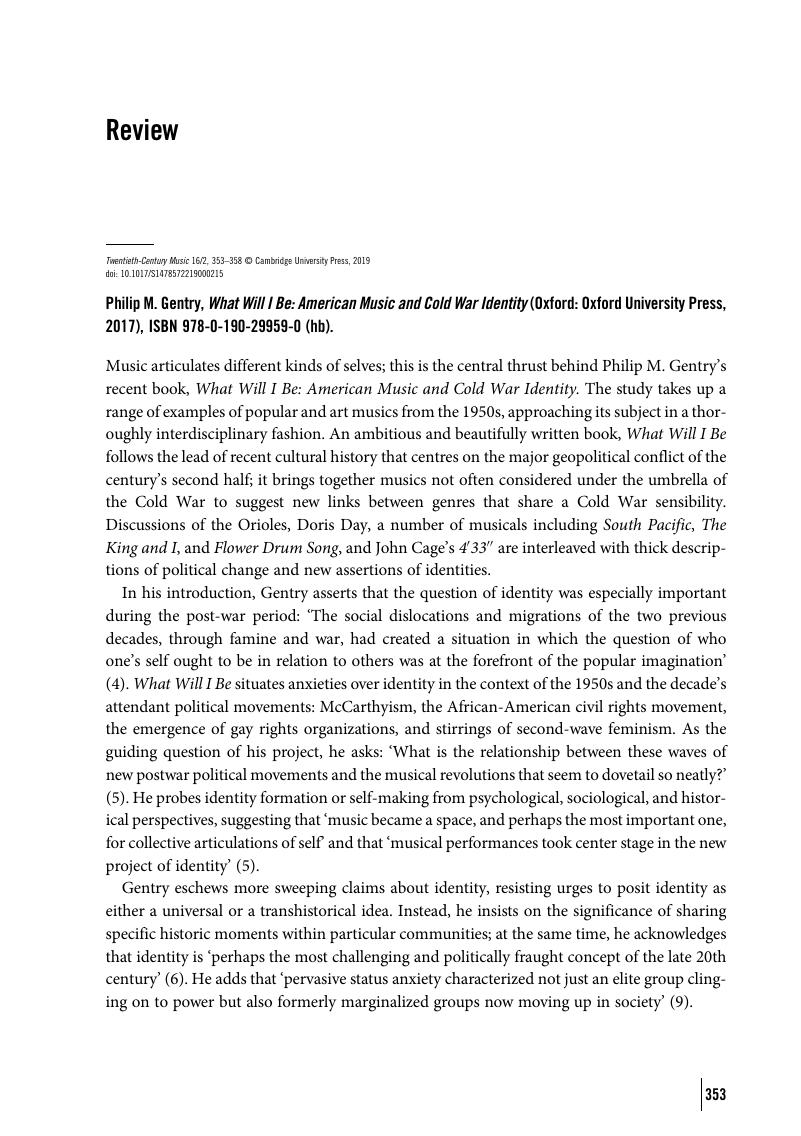No CrossRef data available.
Published online by Cambridge University Press: 30 April 2019

1 See Keightley, Keir, ‘Music for Middlebrows: Defining the Easy Listening Era, 1946–1966’, American Music 26/3 (Fall 2008), 309–35Google Scholar and McCracken, Allison, Real Men Don't Sing: Crooning in American Culture (Durham, NC, and London: Duke University Press, 2015)CrossRefGoogle Scholar.
2 Sarah Culpeper describes ‘girl singer’ as ‘the affectionately dismissive term for women big band vocalists’. Throughout her study, Culpeper uses the term ‘postwar pop vocalists’ to refer to the same group of singers Gentry discusses. See Sarah Culpeper, ‘Performing Conformity, Unleashing Craft: Female Vocalists of Postwar Pop, 1945–1956’ (PhD dissertation, University of Virginia, 2013).